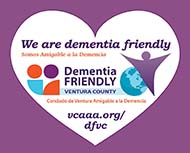
The winter months can prove to be a bit challenging. With an abundance of winter holidays, kids out of school, and the flu season the logistics can be a bit nightmarish. So it is easy to see how the seniors in our lives may not be on the top of our mind. Although, our parents and grandparents might need a little more notice this winter season. Seniors are much more susceptible to winter hazards, such as dangerous weather conditions, the flu, and much more. Here are 3 Elderly Winter Weather Tips that can keep your loved ones safe this holiday season.
Senior Care: Avoid Slippery Winter Conditions
All of us have taken a spill before, whether it was on a slippery tile floor or a dastardly edge of a protruding piece of concrete. Now mix in the wet and ice of winter and the spills come more regularly. When you where young these falls where nothing more then a good laugh and being told to walk it off, but things are not so simple with age.
Falls are the leading cause of hospitalizations. According to the CDC Seniors age 75 and older who fall are four to five times more likely than those age 65 to 74 to be admitted to a long-term care facility for a year or longer. Fall injuries cost the U.S. health care system over $23.6 billion dollars in 2005. This is why it is very important to make sure the seniors in your life are well equipped for the winter months.
One great way to help reduce falls is ensuring they have the proper winter gear. Non-slip shoes are a great way to help seniors navigated the slippery conditions. It is also good to know that most quality sneakers are non-slip and it is really avoiding shoes that have slick bottoms and heals that can really help.
When walking in the door from a wet day you may take that first step inside and you feel your foot slip. It has happened to all of us and is why another great way to avoid falling risks is to have a safe way for seniors transfer from the outdoors to the indoors. A good way to do this is to have a mat by the door to dry your feet before entering. Be sure the mat is not too thick that someone may trip on it.
Senior Care: Prevent Hypothermia and Carbon Monoxide Poisoning
Winter is all about warming up, whether it is cozying up next to the fire, turning on the heater, or cooking some hot cocoa. With all these great holidays traditions we can’t forget about our seniors. The elderly are much more susceptible to the cold and are at higher risk of hypothermia. According to the CDC, more than half of hypothermia-related deaths were of people over the age of 65. Anytime a person’s body dips below 95 degrees they should get immediate medical attention.
One great way to be sure your loved ones do not get caught in the cold, is to check they have enough warm clothing and blankets. Many elderly may not be cognizant of changing to warmer bedding once winter hits. It is best to physically check that they have adequate coverage.
Another way to ensure seniors stay warm all winter long is by setting their thermostat. Most programmable thermostats can set the time of day and temperatures for the entire week. This is a worry free way to set the optimal temperatures even when you’re not around.
With all of these great heating options to keep warm during winter always be sure to have safety in mind. Carbon monoxide poisoning is a serious risk for anyone. ABC News reported that nearly 15,000 visits to the emergency room are caused each year by unintentional CO poisoning. Even further, seniors can be more vulnerable to CO poisoning if they have health issues, especially anemia or heart or breathing conditions. To keep your loved ones safe be sure they have working carbon monoxide detectors as well as fire alarms.
Senior Care: Reduce Risks of the Flu
Flu risks are always high during winter and the elderly are especially susceptible. In February of 2013 USA Today reported that people older than 65 who died from a laboratory-confirmed case of influenza died at a rate of 116 per 100,000. “Rates have been kept since 2005 and we have never seen a rate this high,” said Michael Jhung, an epidemiologist at the Centers for Disease Control and Prevention. “The highest we’ve ever seen was 90 per 100,000.”
With this in mind the correlation between why the flu is so bad during winter has been greatly debated. Many may think that the cooler temperature is the reason but this is not the case. There are even many theories and remedies that claim to help colds, but there are only two for sure things that can help. The first one is being sure to wash your hands. The second is getting a flu shot. A flu shot can help prevent the average of five days of fever, headaches, sore throat, and other symptoms caused by actual flu, which can also cause complications such as pneumonia.
With all of these senior winter weather tips in mind the best way to ensure everyone is safe is to stay in contact. Calling the elderly in your lives will help to know any warning signs of potential problem that might come up.







